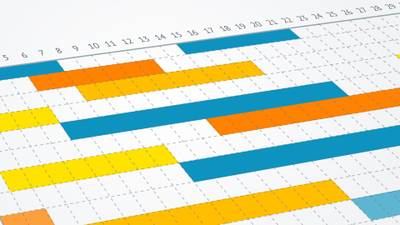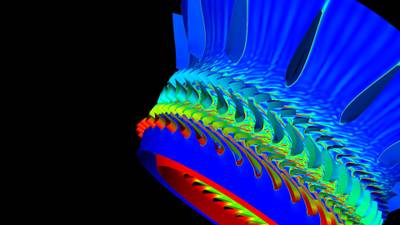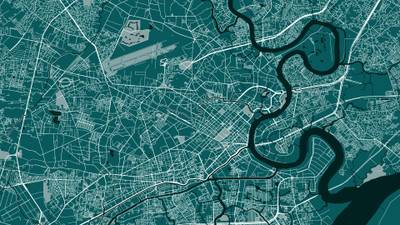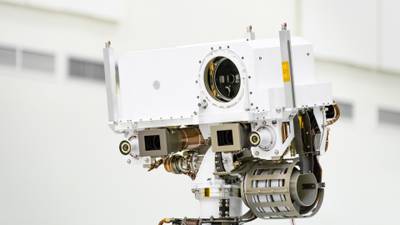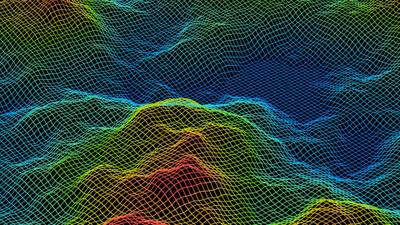Gain the important mathematical tools you’ll need as an engineer working in safety, risk and reliability.
Join our online Statistics and Probability course and attain vital professional knowledge, skills and a career advantage as a graduate or practising engineer.
Join us online, wherever you are in the world, with no need for a study visa. And enjoy the flexibility of setting your own study hours on a course that fits around full-time work.
You’ll learn with a university at the forefront of teaching and professional training for ambitious engineers.

Build credits towards a Masters degree
This online course is part of:
You can use the credits you earn on this short course towards this MSc qualification.
What you’ll study
This course will give you an in-depth understanding of applied probability and statistics.
You’ll learn how to apply probability and statistics in your own field as you undertake the calculations necessary to quantify risk and assess reliability.
You’ll also grow your financial skills in understanding the investment side of risk calculation.
Providing you with a solid mathematical foundation for the analysis of safety, reliability and quality, your course will also cover the following topics:
- Revision of elementary concepts in statistics and probability
- Important uni-variate distributions
- Bi-variate and multi-variate normal distribution
- Parameter estimation and goodness-of-fit
- Analysis of statistical data
- Treatment of outliers
- Analysis of variance
- Introduction to continuous and discrete stochastic processes
How you’ll study
Online learning
This distance-learning Statistics and Probability course is delivered flexibly online. You can study with us anywhere in the world and manage your study hours to suit you.
Part of both our MSc in Safety and Reliability Engineering and MSc in Safety and Reliability Engineering for Oil and Gas, this course is taught at Masters level.
Your teaching
Your teaching is delivered through MyAberdeen, our online Virtual Learning Environment (VLE). It holds all the materials, tools and support you’ll need in your studies. Take a look around MyAberdeen.
You can access your learning materials on computer, smartphone and laptop, 24 hours a day. You’ll find a range of resources at your fingertips, including:
- online lectures and tutorials
- reading materials
- the online resources of our award-winning Sir Duncan Rice Library
- discussion boards with colleagues and tutors.
Your tutors
You’ll learn from highly qualified and experienced tutors from our School of Engineering, with strong backgrounds in research and industry.
Industry input
You’ll also benefit from the direct input of an Industry Advisory Board. It constantly reviews your course content to ensure that you’re gaining the latest industry knowledge and are up to speed with emerging trends, technologies and career opportunities.
You’ll be assessed online. Assessment will take place throughout the teaching term.
Types of assessment for this course may include:
- coursework
- online quizzes
- timed online open-book assessments.
Assessment deadlines
Your assessments will have submission deadlines, either during or at the end of the course. Your course coordinator will let you know when your assessment deadlines are, so you can plan your study time accordingly.
The course totals approximately 150 hours of study and assessment time. That’s around 10 – 15 hours per week.
This is an indicative guide to the time required for a typical student at this level to achieve the learning outcomes. This includes time for independent study, as well as teaching and assessments.
You can largely set your own study hours each week to cover the materials. MyAberdeen is available 24/7, so you can log in and study when it suits you.
Activities at fixed times
There may be some activities scheduled for fixed times. This could include coursework and assessments with deadlines, or online meetings with your tutor. Otherwise, you can access and work through the course at your convenience.
Our first-class support structure will ensure that you aren’t alone in your studies. You’ll have contact with your course coordinator throughout your course. This could be by email, MyAberdeen, online call, or phone. You can use social media and discussion boards to chat with your fellow students too.
We provide a wide range of services to support you in your studies and beyond:
- Careers and Employability Service
- Disability support
- IT support
- Library support
- Student Support Service – help with finances, stress, wellbeing and non-academic issues
- Student Learning Service – study support, with advice sessions available via phone or Skype
- Aberdeen University Students’ Association (AUSA) – run by students for students
- Toolkit – clever apps and free training that can make your study life easier
Wherever you are in the world, you’ll feel part of our very special Aberdeen learning community.
Your course coordinator

Dr Srinivas Sriramula
Srinivas is a Senior Lecturer in our School of Engineering. He specialises in technical safety computations. His PhD focused on copula-based simulations for engineering systems. Srinivas is an award-winning tutor who holds an Excellence in Teaching Award for his work with postgraduate engineers.
View Srinivas’ profileWhere this will take you
Towards a Masters
You’ll earn 15 credits at Masters level (SCQF Level 11) with this course. You can use these credits towards our:

Accredited Masters in Safety and Reliability Engineering
Become a world-class safety engineer, wherever you’re based, with this accredited online MSc. Train online with internationally experienced safety engineers and learn direct from industry.
View MSc Safety and Reliability EngineeringBuild your learning
We offer a range of specialist online Engineering and technology courses you can use to build your skills.
Many carry credits you can build up into postgraduate qualifications, including Masters degrees:
Careers
This course is designed to prepare you, as a graduate or practising engineer, for a career in safety and reliability engineering and risk management. There’s a continuing high demand for people with specialist knowledge in these areas.
You could also continue on to research work in risk quantification.
Your employer or professional institute may recognise this course for Continuing Professional Development (CPD). Talk to your employer or institute to find out more.

Free career support
Access our free careers service while you study.
- 1:1 appointments
- CV checks
- Interview prep
- Job opportunities
Entry requirements
Entry requirements
We welcome students from all over the world.
See the minimum entry requirements above. If you do not have qualifications from the UK, check equivalent qualifications from your country.
Visa requirements
You do not need a student visa to study online with us.
English language requirements
Teaching is delivered in English.
If English is not your first language, use our English requirements checklist to see if you need to provide evidence of your English language skills when you apply.
English language tests and scores
If you do need to provide English language test scores, these are the tests and minimum scores we accept for this course or degree.
These are our Postgraduate Standard requirements.
IELTS Academic, IELTS UKVI Academic, and IELTS Online (not IELTS Indicator or IELTS General Training)
- 6.5 overall
- 5.5 for listening, reading and speaking
- 6.0 for writing
TOEFL iBT and TOEFL iBT Home Edition
- 90 overall
- 17 for listening
- 18 for reading
- 20 for speaking
- 21 for writing
- TOEFL DI code is 0818
Cambridge English: B2 First, C1 Advanced, or C2 Proficiency
- 176 overall
- 162 for listening, reading and speaking
- 169 for writing
LanguageCert Academic/LanguageCert Academic SELT
- 70 overall
- 60 for listening, reading and speaking
- 65 for writing
LanguageCert International ESOL B2 Communicator (Written and Spoken) – Online / In-centre
- Overall High Pass
- 33 for listening, reading and speaking
- 38 for writing
Oxford ELLT Digital – English Language Level Test Online
- 7.0 overall
- 5.0 for listening, reading and speaking
- 6.0 for writing
PTE Academic (online test not accepted)
- 62 overall
- 59 for listening, reading, speaking and writing
Duolingo – tests taken from 1 July 2024 onward
- 120 overall
- 95 for listening, reading and speaking
- 105 for writing
University of Aberdeen English Pre-sessional Programme (PSE)
- Pass
- Valid for one year. Refresher can be offered if out of date
Pre-sessional academic English preparation programmes undertaken at other UK universities
- Pass at an equivalent of 6.5 (C1)
- B2 in all four skills
- Certification must be within one year prior to the start of your course
For full information about language requirements, see our English Language Requirements page.
For this course, you’ll apply through our Applicant Portal. It allows you to upload relevant qualifications and documents. Our admissions team will then review these and contact you.
Documents you’ll need to apply for this course
- Degree transcript
- Personal statement
- CV
Apply now
Start with our step-by-step guide. It explains degree transcripts, what to write in your personal statement and how to use the Applicant Portal.
Apply as early as you can. This is so we have time to review your application and get a decision to you. We also want to ensure you have time to enrol before teaching starts.
September 2024 intake
For our September 2024 intake, the application deadline is 8 September 2024.
You will need to accept your offer and provide any outstanding documents to meet the conditions of your offer by 15 September 2024.
Teaching starts on 23 September 2024.
You will need access to:
A computer (PC, laptop or Mac) operating on either:
- Windows 10 or later
- macOS 10.15 (Catalina) or later.
Most teaching materials are smartphone- and tablet-friendly. But we recommend a proper laptop or desktop for completing assignments comfortably.
Reliable internet access
We recommend:
- a wired connection
- a minimum download speed of 2 Mbps so you can take part fully in live sessions.
Speakers or headphones
- We recommend a headset with built-in microphone and earphones if you’re likely to study in an environment with background noise.
- A webcam is optional, but you may like to use one for some interactive sessions.
Software
We’ll give you access to Office365 applications. This means you can use online versions of Microsoft Word, Excel, and PowerPoint and install these programs on up to five personal devices.
If your course requires specialist software, we’ll provide you with access to this and a licence that lasts throughout your studies.
See our detailed IT requirements for more information.
When you study with us, you can expect a first-class support structure so that you’re never alone in your studies.
But learning online does mean you have to motivate yourself and manage your own time.
Your most important commitment will be time – the time to work through, reflect on and understand your teaching materials.
Before you start a course that involves a high degree of independent study, we recommend looking at the time you will be able to devote to your studies each week:
- Be realistic
- Create a weekly schedule as a guide
If you have any questions about studying online, get in touch with our friendly team. We’re here to help.
Fee payment
Your course fee needs to be paid in full before you start your course.
We accept payment via Visa Debit, Visa Credit and Mastercard.
Ways to save
You may be able to get help funding this course via:
- discounts – if any discounts are available for this course, they’ll appear in the section below
- employer sponsorship – we accept full and partial fee payments from sponsors.
Find out more about funding options.
Student card
All our students are entitled to a University of Aberdeen student card. This gives you access to a range of student discounts around the city and online.
For entry to this course, we’d expect you to hold a relevant degree.
However, your application will also be considered if you have alternative qualifications combined with an appropriate level of relevant experience.
Mathematical skills
This course includes significant mathematical content. Please review our mathematical skills document, which we’ve prepared to give you an indication of the level of mathematics you’ll require.
Apply for this course














